
The state of plastics
Many Co-op owners and shoppers have shared their interest in reducing plastic usage in the store. From bioplastics, to compostable plastics to recycling options, the Ashland Food Co-op continues to research what works best as we move towards our goal of being a zero waste store. Here is where we stand.
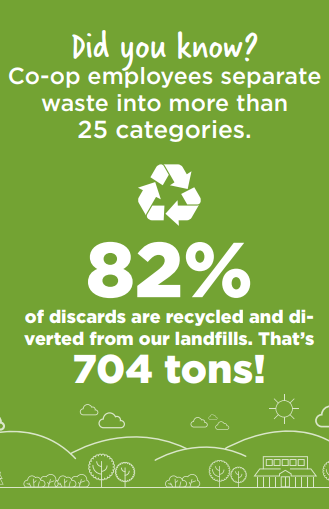
Right now, there is a trade-off in terms of food and plastic waste. Plastic is extraordinarily unique in its ability to preserve food and prevent spoilage and waste. But the trade-off is its very long lifespan.
Reducing plastic waste - by using alternative storage materials, or going package-free when possible - results in more food spoilage and waste, which can sometimes have a bigger ‘carbon footprint’ than plastic use alone.
The best way to summarize: as of March 2019, no perfect solution for plastic alternatives exist.
This isn't meant to make excuses for waste - as you may know, we already divert over 80% of our waste from the landfill. But it is important to know where things stand, and what some of the many decision-making factors are, that go into this debate about containers and plastic. Let’s break it down:
Bioplastics
Bioplastics often come from unsustainable sources - for example, monocropped GMO corn that could be used to feed people, or is grown on the other side of the country and requires a large carbon input to deliver.
As the name implies, bioplastics often have lifespans as long as petroleum plastics - they’re still plastic! The “end of life” assessment for bioplastics is not much better than petroleum plastics. For example, a single-use plastic fork made from GMO corn will still end up in the landfill.
Though there are recyclable and compostable bioplastics, they often require specialized machinery at waste disposal sites to be broken down. Our region does not currently have that infrastructure, and the additional carbon footprint to ship these materials elsewhere can quickly outweigh the ‘bio’ benefits.
The Co-op continues to explore options in this area: more readily compostable bioplastic bags are hitting the market which we will continue to test.
Alternatives to plastic
AFC has brought in cardboard packaging for some produce, like cherry tomatoes and strawberries. And yes, they are completely recyclable!
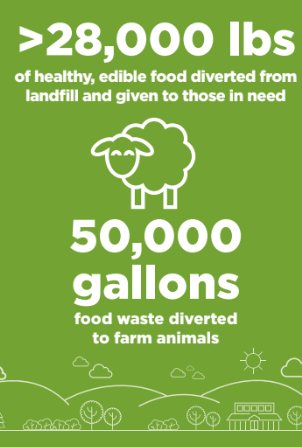
However, it can be difficult for customers to visually connect with the product - can you tell how juicy and ripe those strawberries are through the cardboard? Without that visual connection, a shopper may be hesitant to buy the product, inadvertently leading to more food waste (because the product stays on the shelf longer).
Cardboard also leads to more spoilage because of the lack of light and its ability to carry moisture (leading to molding).
Is generating more food waste an acceptable trade-off to having recyclable and compostable packaging? This is another instance where analyzing production inputs and requirements, instead of just ‘end-of-life’ issues for packaging, gives a better idea of the sustainability of a packaging type.
Plastics recycling
Many plastics are no longer being accepted by local waste management services. Generally, white, rigid plastics (example: yogurt containers) are still being recycled; clear, non-rigid plastics (soda bottles, salsa containers) are not. So buy smart!
Clamshells are a common area of concern. The Co-op is very lucky to be able to recycle plastic clamshells from products that were purchased at AFC. You can bring those clamshells back into the store for recycling. Even better, this recycling is more carbon neutral because the clamshells hitch a ride back to Eugene on existing truck routes (rather than a one-off transit run).
If you're purchasing greens, you can also bring your own container to fill from the bulk spinach and baby greens bins. Alternatively, OrganicGirl salad clamshells are made of 100% recycled plastic.
Our commitment
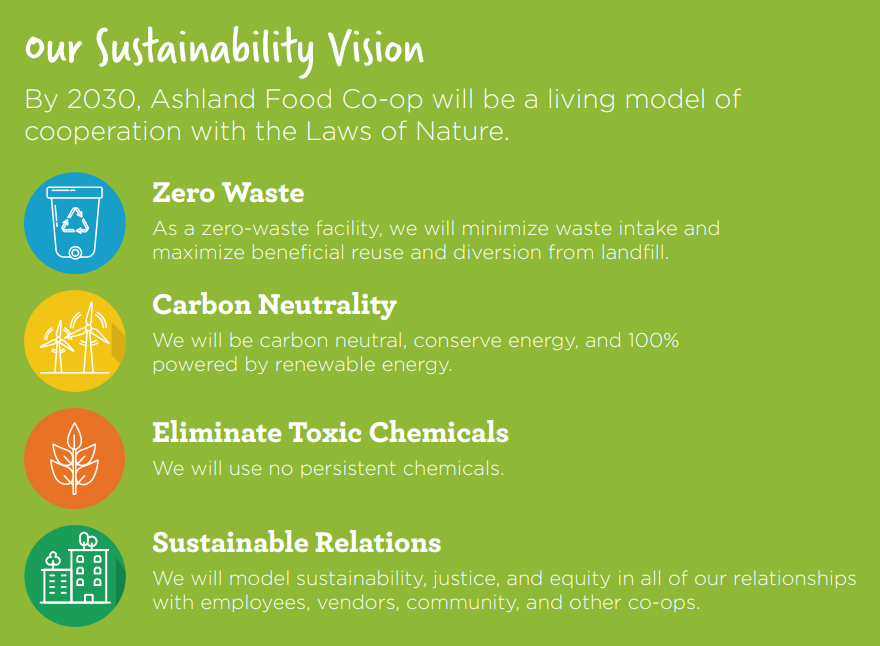
It’s easy to see that with the options available right now, there’s always a trade-off. In our own store and through the National Co-op Grocers network, we continue to look for a solution that is not petroleum-based, non-GMO, and that can be recycled or composted fully. When that solution arrives, we will be ready!
Right now, you should aim to reduce your overall plastic consumption when making purchasing decisions; choose reusable packaging when you do have to purchase plastic (clear salsa packages make great storage for leftovers); and choose recyclable plastic (white plastic and clamshells) if you think you’ll only get one use out of the packaging.
For some additional reading on the topic of plastics and packaging, check out this report put together by the Oregon Department of Environmental Quality.
More Co-op News
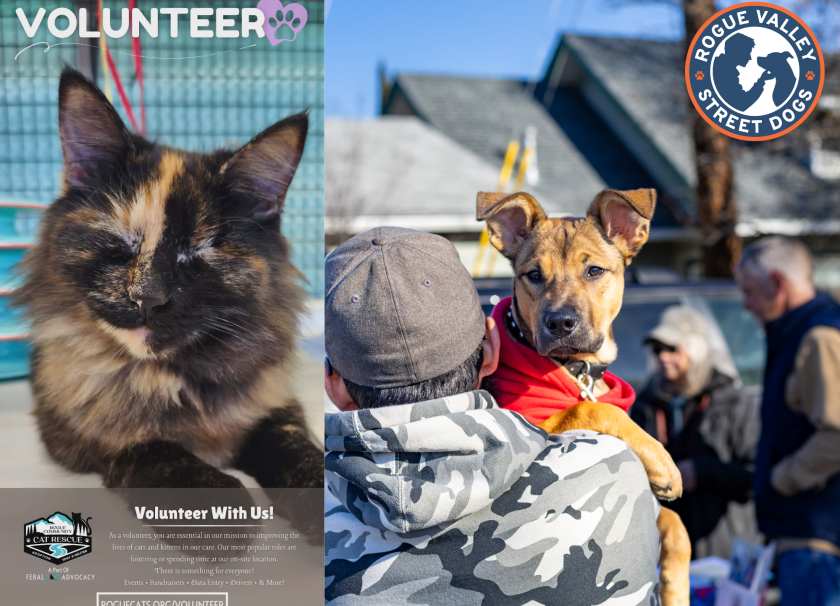
Meet our February Change for Good Recipients
This month at AFC we're doing things a bit different! For the entire month of February round up your total at checkout and donate to TWO amazing organizations: Rogue Community Cat Rescue and Rogue Valley Street Dogs.
Rogue Community Cat Rescue is a nonprofit based in Medford, Oregon that aims to advocate for and improve the lives of community cats and kittens through Trap-Neuter-Return (TNR), rescue, foster care, adoption, and education. Recently, RCCR has been able to shift into larger-scale projects including, but not limited to:
The Co-op Community Classroom - Learn from local educators!
Located at 300 N Pioneer St, just behind the Co-op, sits our lovely community classroom. Here, we host delicious cooking classes, free lectures, sustainability classes, health and wellness events, cookie parties, community dinners, board meetings, and more! Owners get discounts!
You can find all events happening in the classroom at ashlandfood.coop/events, or look around the store as you shop for information teasing our upcoming classes.
If you are interested in TEACHING a free or paid class, you can contact education@ashlandfood.coop for more information.
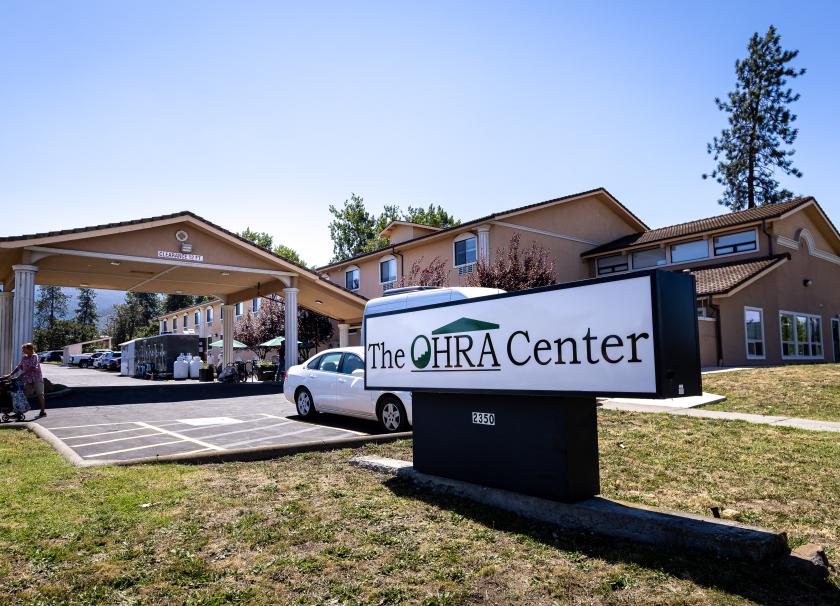
Meet our January Change for Good Recipient
"Moving people from crisis to stability," Opportunities for Housing Resources and Assistance or OHRA is a non profit organization whose mission is to help low-income people build better lives. This is done by offering both hope and access to various social services,
"We encourage those in need on the path to self-sufficiency."
December Change for Good: Jackson County Fuel Committee
If you’ve lived through even one Rogue Valley winter, you know the cold settles in quickly. The frosty mornings, the long dark evenings, the kind of chill that lingers no matter how many layers you put on - winter can be tough. And while many of us can manage with the help of heaters, woodstoves, and warm homes, thousands of families in our community struggle to access the heat they need to stay safe and comfortable. That’s where the Jackson County Fuel Committee (JCFC) comes in!


November Change for Good Recipient
Meet our November Change for Good Recipient: The Siletz Health Clinic
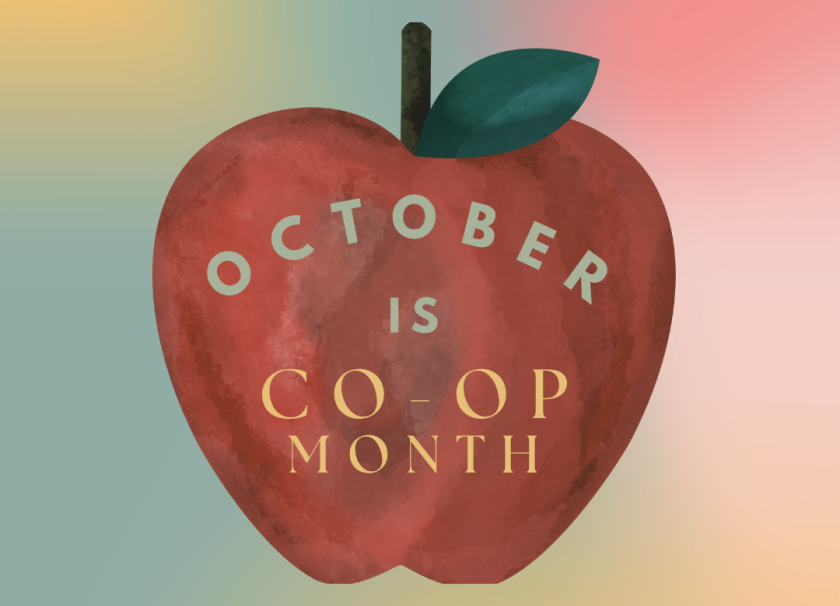
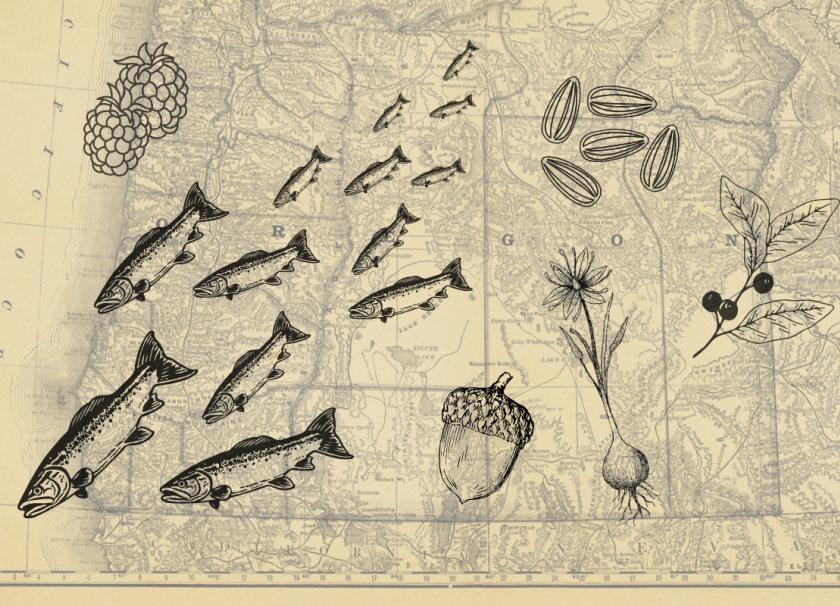
Celebrating Indigenous Food and Traditions
Each October, when so many across the country celebrate Indigenous Peoples' Day, the Ashland Food Co-op pauses to reflect on the land we call home, the people who've cared for it, and how food and connections to the land can help us return that inheritance in a positive way.
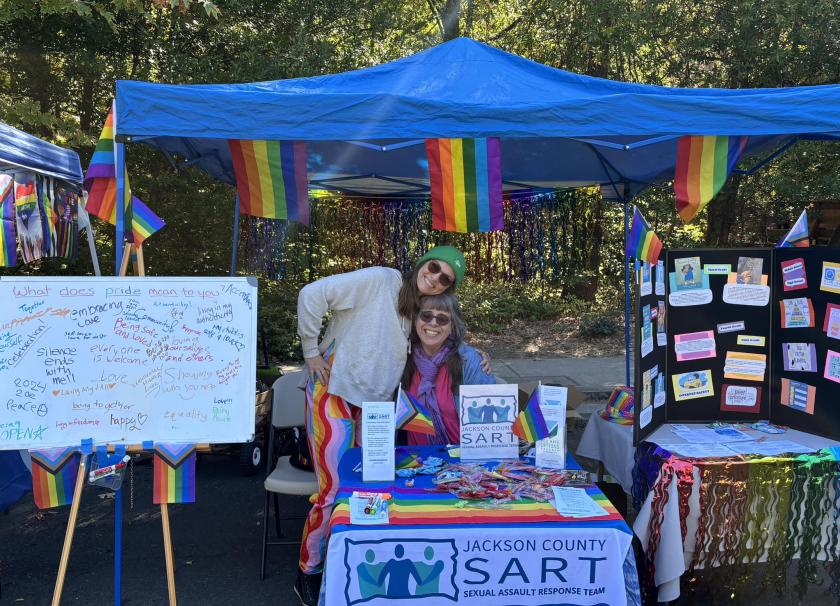
September Change for Good: Siskiyou Field Institute
This month, your Change for Good donations support Siskiyou Field Institute (SFI), an organization that helps people connect with one of the most biodiverse regions in North America: the Klamath-Siskiyou ecoregion.
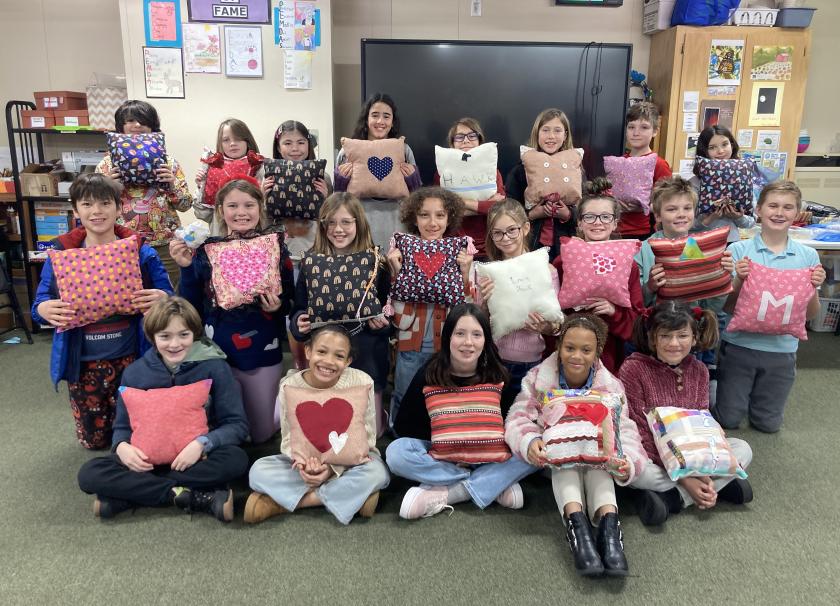
Meet our August Change for Good Partner - Ashland Schools Foundation
August's Change for Good partner is a perfect fit for this month as our kids head back to school. Ashland Schools Foundation (ASF) is a nonprofit dedicated to supporting quality education in Ashland's public schools. You may have run in the Monster Dash or noticed the "Perk Up for Students" sign at our local coffeeshops - these are just some of the (fun and delicious) ways you are already supporting ASF.
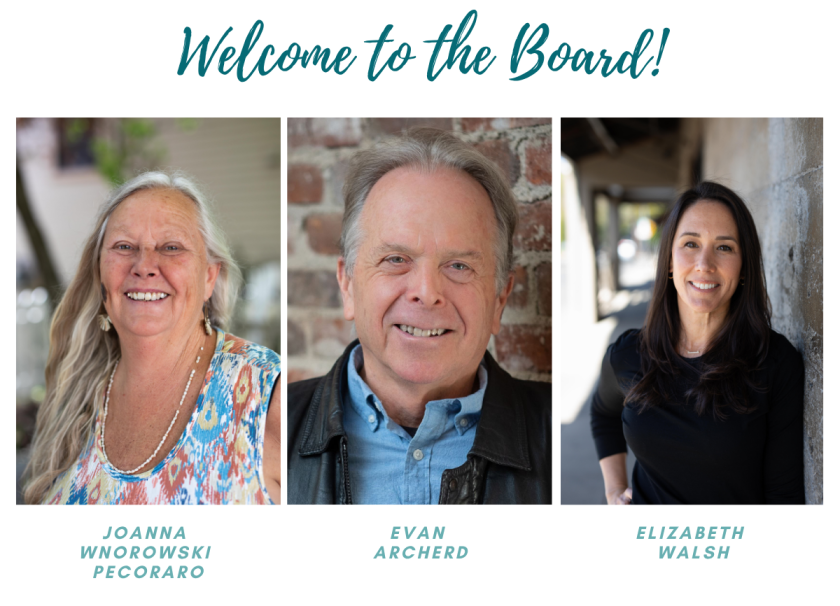
Welcome to the Board!
We are happy to welcome two new Directors, Evan Archerd and Elizabeth Walsh, to the Board! And we're thrilled to have Joanna Wnorowski Pecoraro continuing to serve!
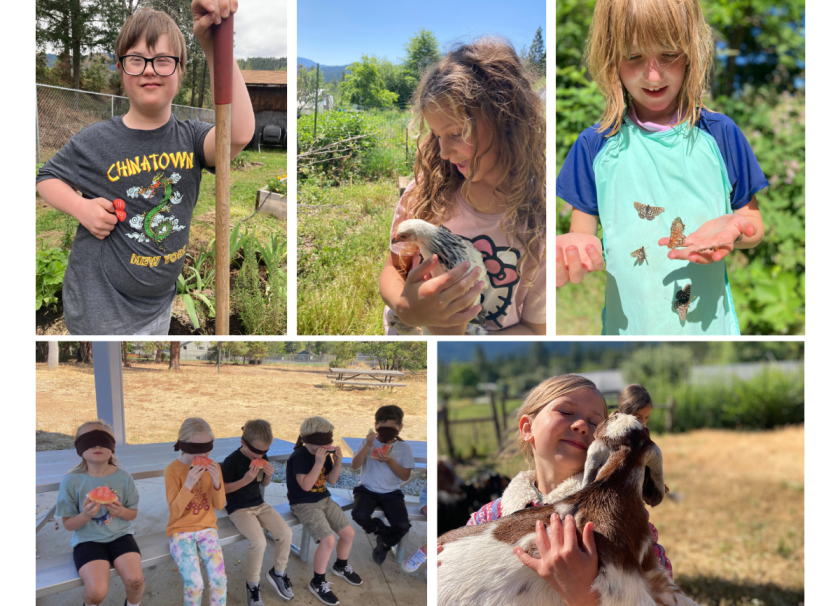
July Change for Good Partner: White Oak Farm
This month, we’re proud to support White Oak Farm, an inspiring organization that blends sustainable farming, environmental education, and community nourishment—right here in Southern Oregon.
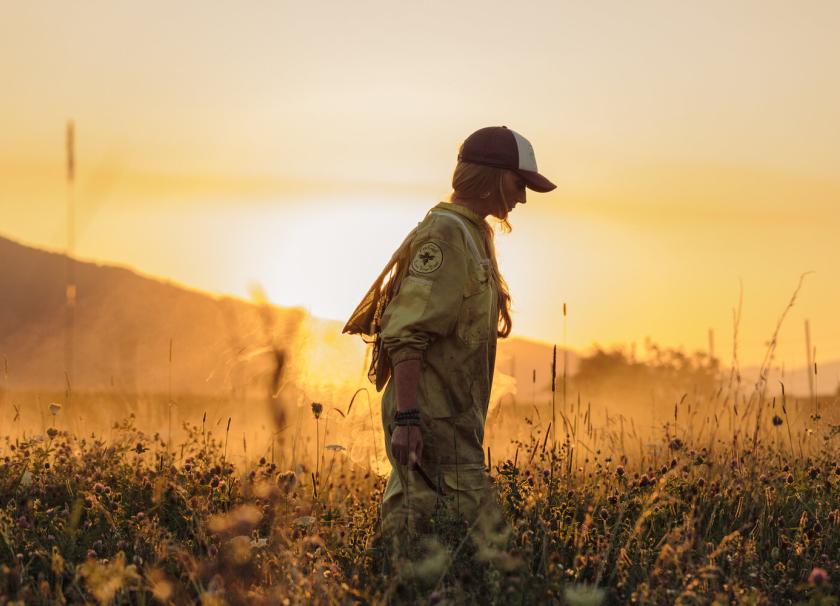
Bee the Change: Supporting Pollinators, Art, and Education with Bee Girl
Here at Ashland Food Co-op, we’re buzzing with excitement about our July Change for Good partner: Bee Girl / Bee Regenerative! This local nonprofit is doing some bee-autiful work to protect pollinators, restore habitats, and teach the next generation how to care for the tiny creatures that keep our food systems thriving.
Bee Girl + Bee Regenerative: More Than Just a Name
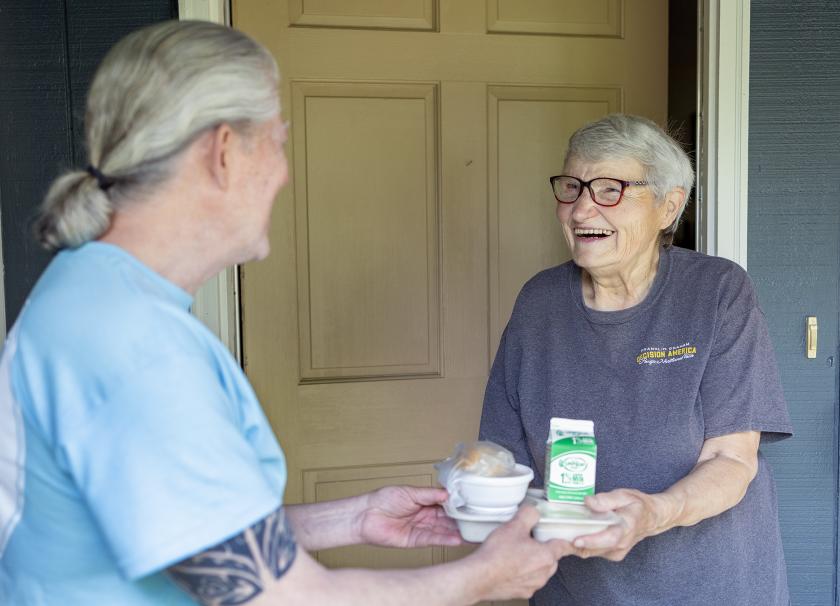
May Change for Good: Food & Friends
Each May, Ashland Food Co-op highlights a local nonprofit doing vital work in our community—and this month, we're proud to feature Food & Friends, the only Meals on Wheels program serving Jackson and Josephine Counties.
